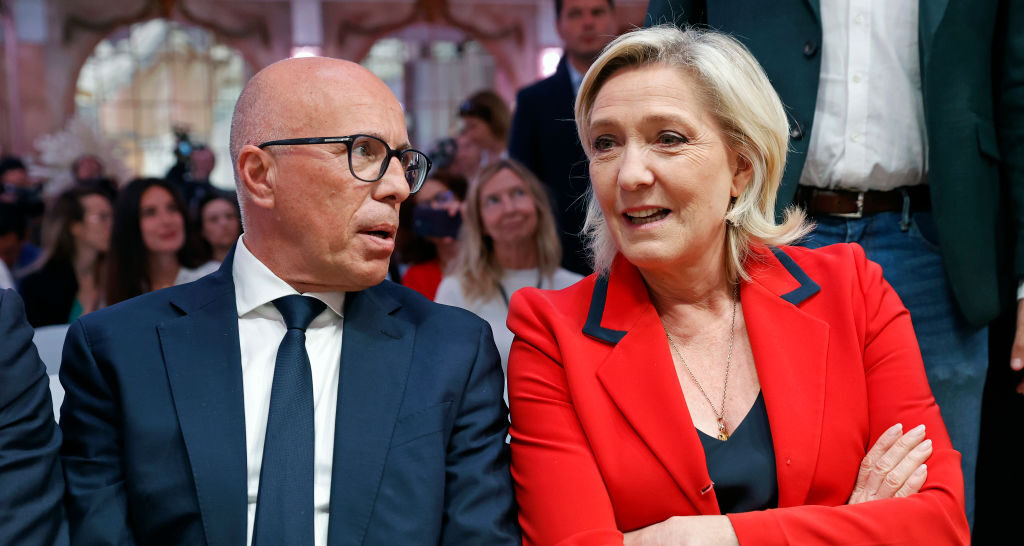Moreover, in 2022, despite the phasing out of its pandemic emergency purchasing programme, the ECB launched a new “anti-fragmentation instrument”, the Transmission Protection Instrument, which was explicitly aimed at keeping spreads under control by allowing the central bank to to buy government bonds from countries. countries whose interest rates vary excessively due to speculation. What is currently happening in the French bond market fits this scenario perfectly. The ECB could close the spread at the push of a button and put an end to the panic. You could even argue that this would be particularly justified: with all the talk of electoral interference, it is difficult to understand why financial markets would be allowed to manipulate the elections by sowing unwarranted panic.
Yet the ECB has so far refused to take action. “What we are seeing is a repricing, but that is not currently the case in the world of disorderly market dynamics,” said Philip Lane, the ECB’s chief economist. His comments were supported by ECB President Christine Lagarde. “We remain vigilant, but it is limited to that,” she revealed, indicating that the bank sees no reason to activate its bond purchase instrument.
At first glance, such comments would lead us to believe that the ECB has taken a technical decision based on arcane economic parameters. In reality, however, the ECB’s decision not to intervene has nothing to do with economics – and everything to do with politics. By looking the other way, the ECB is using the ‘bond vigilantes’ as proxies to scare voters – and send a message to Le Pen. Adam Tooze has compared this ‘agreement’ between the bond markets and the ECB to that of ‘state-sanctioned paramilitaries meting out punishment while the police watch’.[s] But look beyond the smokescreen and it becomes clear that it is not the markets meddling in the French elections; it is the ECB.
This is not the first time that the ECB has engaged in financial and monetary blackmail to force governments to adhere to the EU’s political-economic agenda. Former ECB President Jean-Claude Trichet made no secret of the fact that he effectively engineered the European “sovereign debt crisis” of 2009-2012 by refusing to support bond markets in order to pressure governments to consolidate their budgets and implement “structural reforms”. . But over the years the ECB has gone even further than simply turning a blind eye to market speculation. On several occasions, the country itself has engaged in speculation, through sell-offs of certain countries’ bonds or other similar actions, to plunge hostile governments into budget crises. Most recently, Giorgia Meloni and Lagarde have clashed on several occasions, with the latter often using the spread to put the Italian government on edge.
What is happening in France today is therefore nothing new. And yet there is something unprecedentedly brazen about the ECB’s latest attempt at election manipulation. What we are witnessing is, in effect, an unholy alliance between an increasingly discredited national elite and the EU’s supranational institutions against the common ‘populist’ threat. The strategy should be clear by now: the EU creates an artificial financial panic and national elites then use it to drive voters away from the ‘wrong’ candidate. As an MP from Macron’s party said Le Figaro: “First and foremost, we need to scare people… to show the consequences and financial risks [National Rally’s] proposed measures.”
“The EU creates an artificial financial panic and national elites then use it to drive voters away from the ‘wrong’ candidate.”
Macron was thus quick to take advantage of the turbulence in the markets to portray Le Pen as an economic threat and invite voters to unite against the National Rally. Meanwhile, his finance minister, Bruno Le Maire, has made the specter of financial disaster his main campaign argument. “I would like to know who is going to foot the bill for Marine Le Pen’s Marxist program,” he said in an interview. (The news that Le Pen is a Marxist will of course come as a surprise to many on the French left.)
